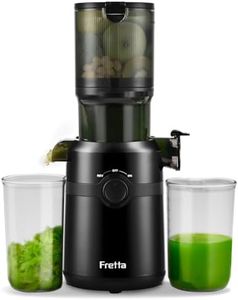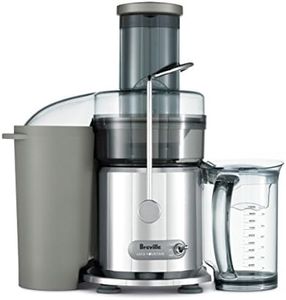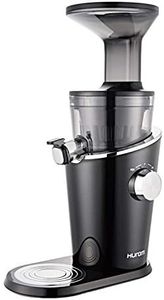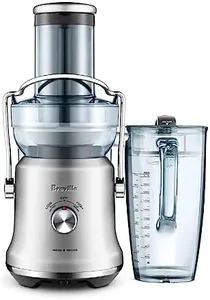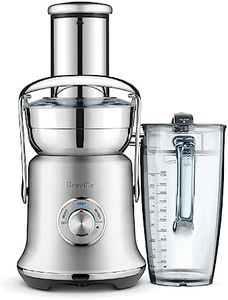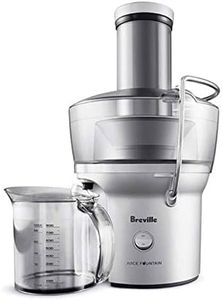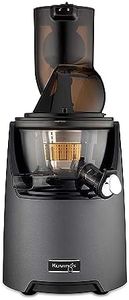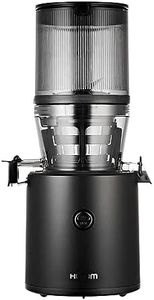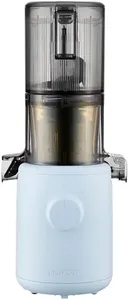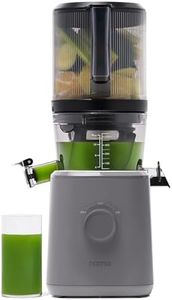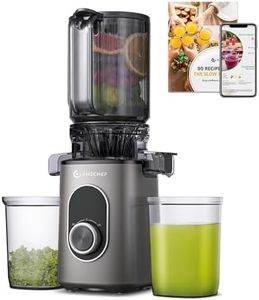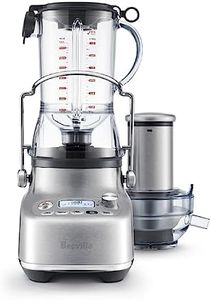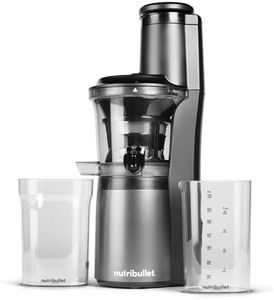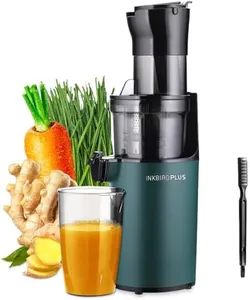We Use CookiesWe use cookies to enhance the security, performance,
functionality and for analytical and promotional activities. By continuing to browse this site you
are agreeing to our privacy policy
10 Best Juicers For Beginners
From leading brands and best sellers available on the web.By clicking on a link to a third party's website, log data is shared with that third party.
Buying Guide for the Best Juicers For Beginners
Choosing your first juicer can feel overwhelming, but it doesn't have to be. The key is to think about how you'll use the juicer—do you want fresh juice every morning, or do you plan to make juice for your whole family on weekends? Consider how easy the appliance is to use and clean, the kinds of fruits and veggies you want to juice, and how much juice you want to make at once. Focusing on these factors will help you find a juicer that fits your lifestyle and encourages you to actually use it!Type of JuicerJuicers typically come in three types: centrifugal, masticating (also known as slow or cold press), and citrus. Centrifugal juicers work quickly and are best for hard fruits and vegetables, but can be loud and may not extract as much juice from leafy greens. Masticating juicers are slower but can handle everything from soft fruits to leafy greens and generally produce higher juice yields and less foam, though they are usually bigger and take longer to clean. Citrus juicers are specialized just for oranges, lemons, and the like, and are the simplest to use and clean if you’re only interested in citrus juice. Think about the produce you plan to juice and your priorities (speed versus juice quality) when picking the type.
Ease of CleaningCleaning can be a dealbreaker if you plan to use your juicer regularly. Some juicers have many parts and screens that can be difficult to clean, while others are designed with simplicity and quick rinsing in mind. Look for models that advertise easy cleaning, dishwasher-safe parts, or come with cleaning brushes. If you know you'll be juicing daily, a juicer with fewer parts and smooth surfaces may help you stick to your healthy habits.
Juice YieldJuice yield refers to how much juice your machine can extract from a given amount of produce. Masticating juicers usually give you more juice and drier pulp, while centrifugal ones can leave wetter pulp since they work quickly. If you want to make the most of your fruits and veggies, look for machines known for higher juice yields. This spec is most important if you want to minimize waste and get every drop out of your produce.
Noise LevelSome juicers can be quite loud, especially centrifugal models, while masticating juicers tend to work more quietly since they operate at lower speeds. Think about where and when you'll use your juicer—if you're making juice early in the morning and don’t want to wake others in your home, you might prefer a quieter masticating model.
Size and StorageJuicers come in various sizes. Some are compact and easy to leave on your countertop, while others can be large and take up more kitchen space. If you have limited kitchen space or plan to store your juicer in a cupboard, a smaller, lighter model might be best. But if you'll juice often and want to process a lot at once, a bigger machine could suit your needs better.
Feed Chute SizeThe feed chute is the opening where you insert fruits and vegetables. A wide chute allows you to juice larger pieces or even whole produce, saving you time on prep work. Smaller chutes require more chopping. If you're often in a hurry or dislike prep, go for a wider feed chute.
Speed SettingsSome juicers offer multiple speed settings, which let you adjust how powerful the juicer is based on what you’re processing. Softer fruits typically need slower speeds, while harder vegetables work best at higher speeds. If you want flexibility to juice many different types of produce, pick a machine with adjustable speeds.

